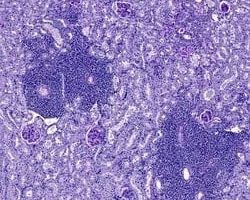mouse
Scripps Research study points to liver, not brain, as origin of Alzheimer’s plaques
LA JOLLA, CA — March 3, 2011 — Unexpected results from a Scripps Research Institute and ModGene, LLC study could completely alter scientists’ ideas about Alzheimer’s disease — pointing to the liver instead of the brain as the source of the “am…
Natural (born) killers: What do they really do?
Our immune systems contain three fundamentally different types of cell: B-cells, T-cells and the mysteriously named Natural Killer cells (NK cells), which are known to be involved in killing tumour cells and other infected cells. Experiments to in…
Study shows rapamycin reverses myocardial defects in mouse model of LEOPARD syndrome
BOSTON — Congenital heart diseases affect approximately one in 100 patients, making them the most common type of birth defect and the number-one cause of pediatric deaths.
Now a new study showing that the mTOR inhibitor drug rapamycin can rev…
Practice more important than age in learning to use computer mouse
COLUMBUS, Ohio — Children as young as 5 years old can learn how to use a computer mouse, new research suggests.
While age is an important component in determining how well a child controls a mouse, the study also found that how frequently a c…





